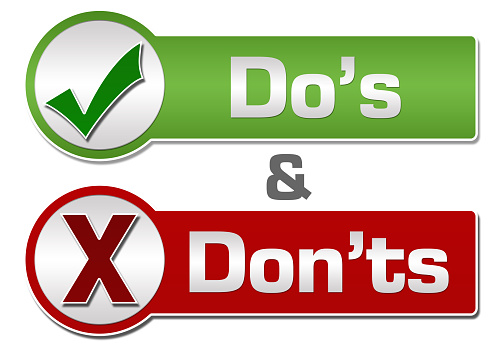Do’s and Don’ts of Background Checks

Can you check a candidate’s credit? Verify the authenticity of their degrees? Scour their social media accounts looking for evidence of drug use or other criminal activities?
The questions are valid, and the answers aren’t simple. Obviously, background checks are an indispensable tool to protect your business. But if you use this tool indiscriminately, you could face penalties or lawsuits for illegal hiring discrimination.
What’s the best way to conduct a thorough background check – without opening the door to potential discrimination suits? While there’s no substitute for professional legal advice, these do’s and don’ts will help you stay safer and hire smarter:
Do:
Follow the law.
Everyone in your organization who has responsibility for background screening should be trained on legislation from the Equal Employment Opportunity Commission (EEOC), the Federal Trade Commission (FTC) and state laws that impact your screening process. The EEOC provides comprehensive resources to help educate your team, stay legal and minimize the risk of lawsuits and fines.
Be consistent.
A written policy for background checks makes it easier to apply the same process to each applicant. When you treat all individuals equally and follow legal processes, you reduce the chances that a discrimination claim will “stick.”
Look for patterns – not isolated incidents.
A single traffic citation is much different from a string of violent felonies. If the background check reveals an isolated misdemeanor that is not related to the written job description, do not base your hiring decision on the report. Focus on the candidate’s experience, interview performance, job skills and references, instead.
Don’ts:
Keep candidates in the dark.
Tell each candidate that you will be requesting a background check – and get written permission to conduct it. And if the background check reveals a conviction directly related to your open position, and you decide not to hire them for that reason, notify your applicant in writing. Follow EEOC guidelines as it relates to adverse hiring decisions and the results found in consumer reports.
Focus on the negatives.
A “blanket” policy that rejects any candidate with any criminal history is extremely risky. If you do find a conviction when conducting a background check, use the EEOC’s guidelines to put things in the proper perspective. Consider:
- what the applicant was convicted of and how serious it was;
- how long it has been since the conviction or end of the candidate’s sentence;
- whether the conviction is relevant to the type of job the applicant is applying for.
One final “do”?
Trust PrideStaff to deliver the screened, qualified and talented people you need – without the risk.
Background checks are a complex, yet essential, component of a thorough hiring process. So don’t do it alone. Experts in recruiting and screening, PrideStaff can perform legal background and reference checks on your behalf, to offer you the best talent in your market. Ready to reduce your risks and staff smarter? Contact your local PrideStaff office to learn more.



